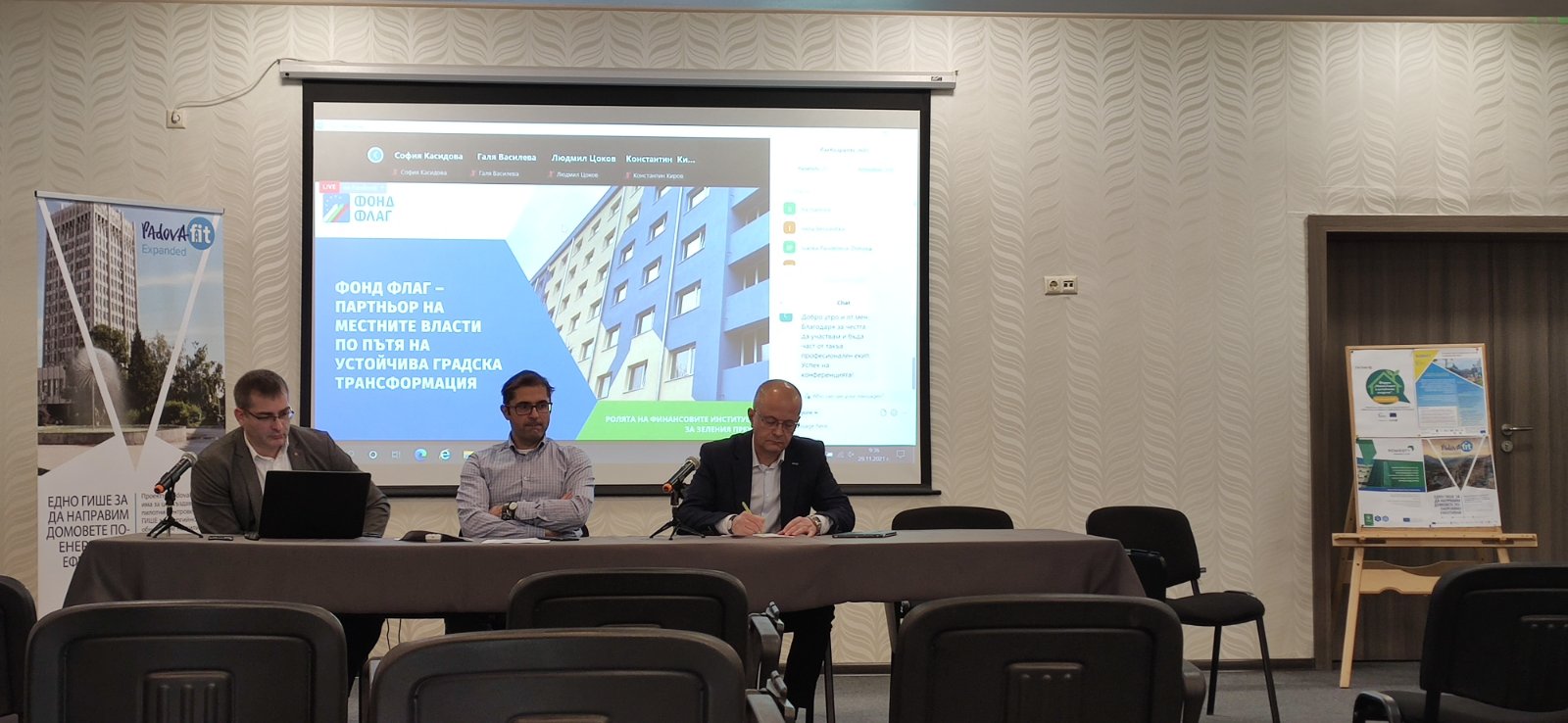PRIVATE CAPITAL IS AN IMPORTANT PART OF THE NECESSARY INVESTMENT IN GREEN TRANSITION
Financial institutions have an important role to play in realizing the green transition and they are working harder to include attractive energy efficiency support products in their portfolio. BDB sees the contribution of small and medium enterprises to sustainable green growth and will fund viable projects. The FLAG Fund, for its part, is developing an instrument aimed entirely at financing projects related to energy efficiency, the transition to clean energy and the provision of innovative financial models.
This became clear today at "The role of financial institutions for the green transition" forum, organized by the Center for Energy Efficiency EnEffect in partnership with the Chamber of Builders in Bulgaria, the Sustainable Energy Development Agency, the Bulgarian Industrial Association, the National Trust EcoFund, UACEG, Econer Bulgaria, the Alliance for Energy Efficiency, Energy Efficiency and Renewable Sources Fund (EERSF), EcoEnergy, Sofia Municipality and Gabrovo Municipality.
The message at European level is very clear - in addition to the expectations for a minimum European standard for building renovation, there is already talk of zero energy buildings as a mandatory condition for construction after 2030, said Dragomir Tsanev, CEO of EnEffect. He added that the largest banks are interested in developing a variety of products to support energy efficiency.
The necessary investments many times exceed the possibilities of both the budget and the European funds - it is important to attract private capital, which can only happen on a market basis, explained the executive director of SEDA Ivaylo Alexiev. According to him, a transition from high-grant schemes to market realization of such projects should be achieved. That is why the role of banking institutions is extremely important and I hope that a series of successful projects will be implemented in the coming years, he added.
The time of the grants is passing, co-financing with financial instruments is needed, said Sofia Kasidova from BDB. The bank conducted a survey among small and medium-sized companies, which are the leading sector in the economy. BDB will finance viable projects of small and medium enterprises, will share the risk of commercial banks by structuring such instruments. Small and medium enterprises need relief, guarantee mechanisms that will solve their difficulties in implementing energy efficiency policies, Kasidova explained. She gave an example with a very successful BDB product for financing photovoltaic power plants up to 1 megawatt. He noted that almost 34 percent of the funds in the National Recovery and Resilience Plan (NRRP) will be directed to a low-carbon economy.
Nadia Dankinova from the FLAG Fund also noted that in the future mechanisms that are not 100 percent grants will play an increasing role. We are currently working on a tool that is aimed entirely at financing projects related to energy efficiency, the transition to clean energy and the provision of innovative financial models. "We are also trying to find technical assistance so that we can provide the projects with this preliminary support, which is extremely important, i.e. pooling the mix of financial resources that will make the final cost of the proposed funding attractive, risk sharing between FLAG and other financial institutions that provide parts of the funding and a good technical assistance to support both project preparation and registration and the report on the results achieved in the final", she explained.
Galya Vasileva from the EERSF also presented a developed instrument for financing energy saving projects with a minimum participation of the borrower of 10 percent, the volume of investment - from BGN 30,000 to BGN 3 million for up to 10 at a fixed interest rate of 3.5%. The project needs to implement standard technology with at least 50 percent of the economic benefits being demonstrable energy savings.
The second part of the session presented the policies and current products of leading commercial banks - UniCredit Bulbank, UBB and ProCredit Bank, among which stood out solutions for green mortgages, SME financing, investments in green energy and electric mobility, and specialized credit lines for renovation of single-family residential buildings. At the same time, the need to guarantee the quality and prove the results of the projects was discussed, in order to attract additional private investment and take advantage of the new opportunities under European funds and programs.






